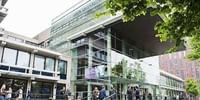Applied Neuroscience in Human Development is one of the nine specialisations of the master?s programme in Education and Child Studies that you can choose at Leiden University.
The primary focus in the curriculum of the master specialisation Applied Neuroscience in Human Development is on how knowledge about brain functioning and stress regulation can contribute to educational practice, clinical work, family interventions, and ? conversely ? how these applications can contribute to optimal neurocognitive and biological functioning.
As a graduate you will have acquired knowledge and skills in:
- The basics of the functional anatomy of the brain, the development of the brain and nervous system, and genetic and environmental factors influencing cognitive development and functioning;
- Methods and instruments for measuring and studying the quality of the (central) nervous system, such as?EEG, brain imaging techniques such as?MRI, parameters of the arousal system such as heart rate and skin conductance, eye tracking, genetics and the hormone system;
- Possibilities for prevention and intervention aimed at optimizing brain functioning and the regulation of thought, emotions and behavior.
Why choose this specialisation?
Knowledge of children?s normal development is a requirement to be able to design and understand research on problematic developmental processes and outcomes.
This master?s specialisation is intended for you if you wish to become an expert in the neurocognitive and biological correlates of emotions, learning, and behavior, both in non-clinical parents and children and in case of problematic development.










